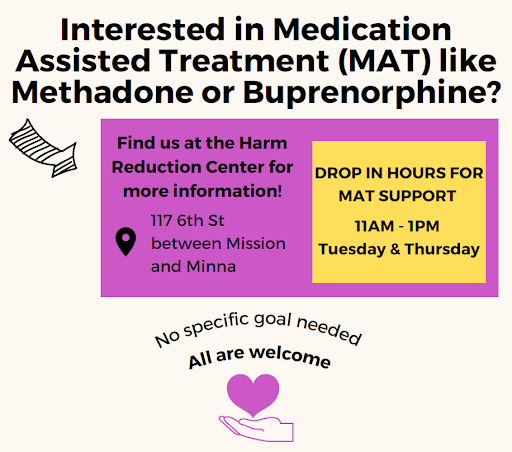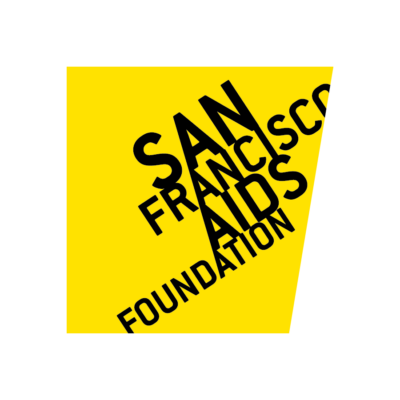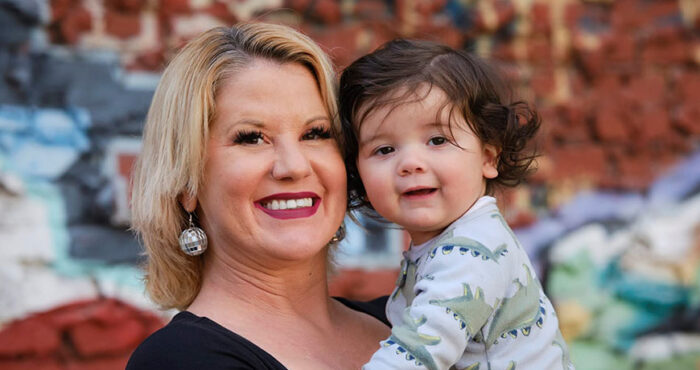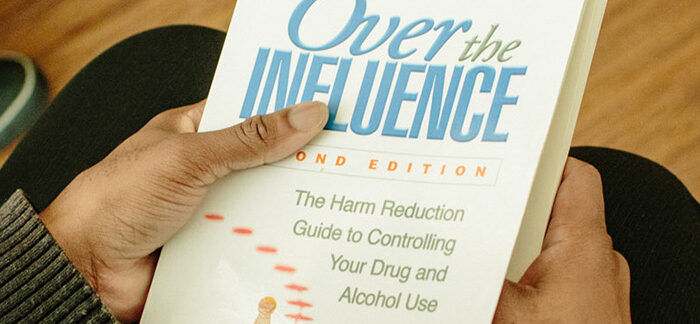Changing opioid use isn’t always easy. We provide options & support.
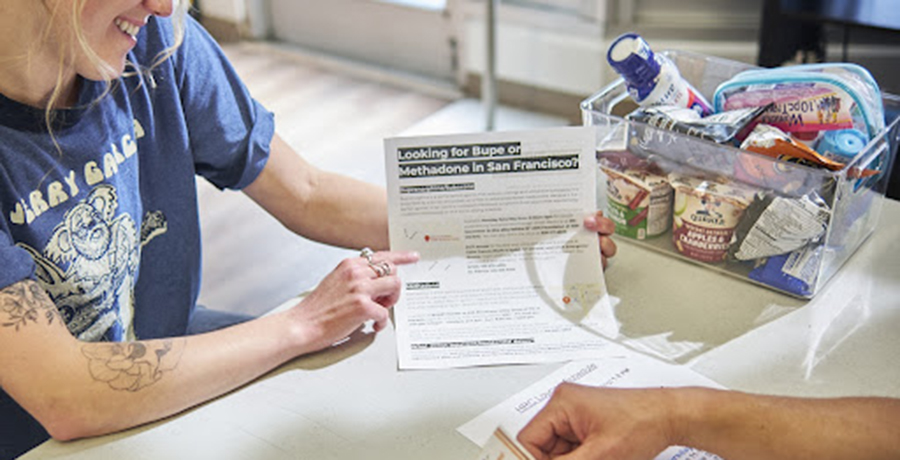
Since last December, MAT coordinators working out of our 6th Street Harm Reduction Center have been a direct link to medication assisted treatment, or MAT, for people who use opioids that are interested in managing or reducing their current drug use. Close to a dozen clients have successfully completed the 12-week program.
“I had a participant recently who came to our program feeling lost,” said Hannah Fryczynski, MAT coordinator with SFAF. “He wasn’t sure where to start when it came to getting off fentanyl. He was ready to quit, but he was pretty nervous about withdrawal. We were able to walk him through the options, and he ultimately decided starting Suboxone was the best option.”
[Suboxone (buprenorphine) is a prescription medication that helps prevent withdrawal symptoms and curb cravings for someone reducing or ending opioid use. It is one medication option in medication assisted treatment, or MAT, which refers to the use of medications–such as methadone and Suboxone–in combination with counseling and behavioral therapies to treat opioid dependence.]
The participant met with Fryczynski every week for three months. During their support sessions, the participant made goals around their drug use and their life. Fryczynski offered support and information about strategies to use during treatment and common experiences with buprenorphine.
“A lot of people have anxiety around starting medication assisted treatment,” said Fryczynski. “It can be overwhelming, because for many, choosing medication assisted treatment is the beginning of a new journey. There are physical symptoms, and there are emotional impacts as well. It’s helpful to have a place to process those experiences, and to have those experiences and feelings validated.”
At the end of the treatment program, Fryczynski celebrated with the client.
“We were both emotional,” she said. “We had created such a great relationship, and they were able to feel proud of themselves for accomplishing what they set out to do only 12 weeks prior.”
Paris Mays, another MAT coordinator, shared similar stories of participants changing their drug use through the program. Being part of a structured program helps in other ways too, said Mays, such as by helping people take back some control of their lives.
“One participant has been able to find housing since entering the program. He’s more vigilant–getting to appointments like for GA [general assistance]. He’s more present in his life. At this point, we’re working on helping him find suitable employment.”
Mays and Fryczynski go above and beyond to help community members interested in starting medication assisted treatment get set up and started on methadone or buprenorphine. Program participants receive individualized support, and program staff advocate for the treatment needs of their clients with service providers.
Because of the logistical challenges presented by rules and regulations governing drug treatment services–methadone in particular–their job isn’t always straightforward.
“There are a lot of considerations,” said Fryczynski. “You often need an ID to start methadone, so we help make sure people have an ID to use. Clinics have different requirements, so we help participants go through what they need for appointments. At the methadone clinic, the intake may take two to three hours–if people want the extra support, we gladly offer the option to walk to the clinic with them. If you’re on methadone, you have to take your medication every single day at the clinic, so we present the client with every option to ensure they are ready to begin methadone treatment. We basically can provide as much or as little support as individuals want and need.”
Sometimes, people dropping in to learn more about the treatment program aren’t ready to make a change to their drug use.
“That’s OK,” said Fryczynski and Mays. “This isn’t a forced treatment program. People have to be ready to make a change in order for this program to be effective. But we always remind them–we’re here every Tuesday and Thursday at the same time. Come back when you are ready. We can pick up right where we left off.”
MAT Support Lounge
Every Tuesday & Thursday, 11 am – 1 pm
6th Street Harm Reduction Center
117 6th Street, San Francisco
